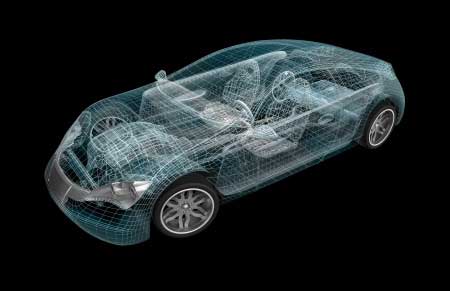
The auto industry has come a long way since the introduction of the first car.
Electric and hybrid cars were once thought to be futuristic (along with flying cars). Now electric cars are on every forecourt of major showrooms across the country. Increasing numbers of super fast chargers are being put in place which means that electric and hybrid cars are able to travel much further than when first introduced. In many areas it now only takes 30 minutes to recharge a battery – just enough time to stretch your legs and get a cup of coffee, but a big enough charge to take you another 100 – 300 miles (depending on the model and make of your car).
Having said that, did you know that emergency vehicles in 1914 were electric? The London Fire Brigade operated fire engines that were also equipped as ambulances and they could do up to 60 miles on a single charge. So we’re not the first generation to make use of battery power.
If you’d said 20 years ago, we’d have self driving cars on the roads, there would have been many who would have a sneaky snigger as you walked away. But here we are; self driving vehicles of all sizes, built and being tested thoroughly with a view to putting them onto our roads for regular everyday use.
There are some for whom the environmental vision would be to see us go away from the model of personally owning cars and moving to a pay as you use model. Rent or pick up a car only when you need it to travel, and even better if it’s electric and reduced emissions. Better again, if it can drive itself to your destination. But realistically that’s not likely to happen. How would we operate one massive car hire pool to get everyone to and from work? We all have our cars so that we can use them whenever we want them. Travel at the drop of a hat and load them up with everything needed for a long journey. So there will always be a need for us to own our cars. That’s not say that some sort of car pool hire scheme won’t be successful and reduce traffic in the bigger cities. There is already a pay as you go car scheme being tested in London.
We’ve got much improved racing cars too. In 2014 an all electric car championship was introduced and the first Formula E racing series took place in Beijing. Contrary to the assumption when talking about electric cars, there is noise associated with formula E racing, just not as loud as F1. Well, you wouldn’t expect it to be would you? However, the street racing format of Formula E racing makes it more attractive to watch for some, and you don’t need ear plugs! The inaugural season runs until June 2015 with the final race on 27th June in London.
Developments in the auto industry just keep pushing forward. When you think that in 1927 the land speed record was broken by Malcom Campbell and the speed achieved was 174 mph; a speed that many domestic cars are now capable of doing, not that we would suggest you try as it is, of course, illegal! However, for those who like to take part in track days on private courses, it is possible to see how far you can push your car. To put the development into perspective, the current land speed record stands at 763 mph, more than 4 times faster than that 1927 record.
We already have, faster, greener, cleaner vehicles that can now also drive themselves. Where will the auto industry go next? What’s your view?
Image Copyright: / 123RF Stock Photo
This site uses Akismet to reduce spam. Learn how your comment data is processed.


 Mail:
Mail: 




Leave a Comments